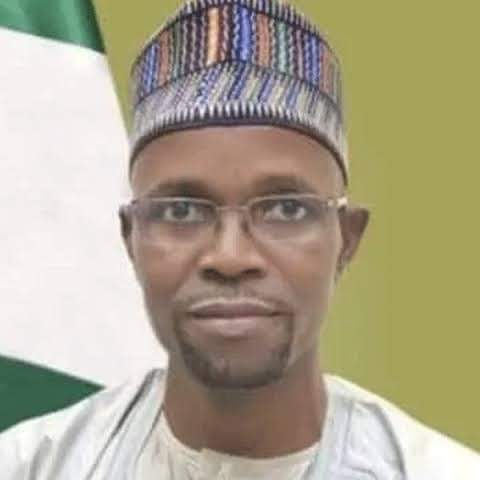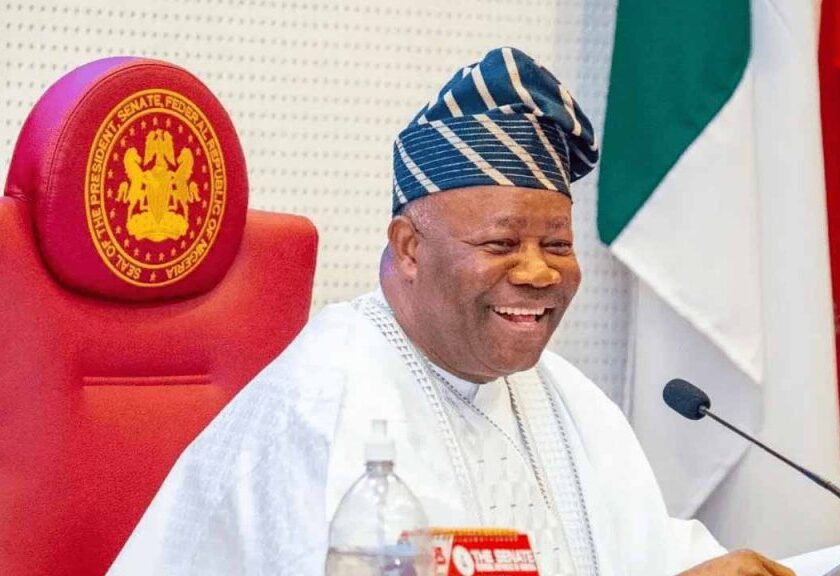The civic space is a cardinal anchor for democracy anywhere in the world and it is imperative to protect it at all costs and by all means possible. Individuals and groups working as members of CSOs in whatever form or shape to enhance the robustness of democratic governance should also be encouraged to contribute in whatever ways they can to engender conversations and dialogues within the democratic space.
The Wole Soyinka Centre for Investigative Journalism recently unveiled a report titled “Hushed Voices and the Media’s Defence of the Civic Space.” The report, which spans 10 years, monitored 150 infractions of the civic space, as reflected in 33 media organisations. It mirrors the violations of the civic space as reported in the media, while determining the occurrence of these infractions and identifying their forms. The report also classifies civic space infractions, perpetuators, and identifies victims and survivors.
I had the privilege of reviewing the report, and focused on four major themes: the imperatives of the civic space; assessment of the intervention of the Wole Soyinka Centre for Investigative Journalism; a critical look at the report and its methodology; and key observations and recommendations.
1. Imperatives of the Civic Space
The civic space is a cardinal anchor for democracy anywhere in the world and it is imperative to protect it at all costs and by all means possible. Individuals and groups working as members of CSOs in whatever form or shape to enhance the robustness of democratic governance should also be encouraged to contribute in whatever ways they can to engender conversations and dialogues within the democratic space.
All legal and illegal means of making the CSOs to speak in hush voices or to be shut out of the civic space entirely should not be tolerated by critical stakeholders in nation building.
The media should be a free market space for all shades of opinions and ideas, in accordance with the dictates of the libertarian theory of the press. As such it is important that the media continues to guard against infractions of the civic space, the type we saw recently in the NBC clampdown on media houses for merely reporting terrorist activities. Or disrupting peaceful protests against government over some unpopular policies. Examples are legion, because we have seen this trend over the years.
2. Assessing the Intervention of the Wole Soyinka Centre for Investigative Journalism
I know for a fact that the WSCIJ has been around for some time and it has been contributing to the growth of good journalism in Nigeria, especially in the areas of investigative journalism, training and retraining, and contributing to the body of knowledge around the profession, as much as it has enhanced the careers of many media practitioners.
Although this monitoring report is novel, I dare say that it is long overdue in Nigeria. It ought to have come earlier, given the experiences and efforts of the Nigerian media in the independence struggle, the enthronement of civil rule and their efforts in sustaining democratic tenets in the country. Notwithstanding the fact that it took us long to get here, the WSCIJ’s monitoring report of the civic space is still auspicious. It is an eye opener to how the media prioritises events in the civic space. It is important to look at the past as a guide to the present and the future, and therefore I commend the WSCIJ, and all those involved in the collation of the report, for looking at infractions in the civil space and pointing the way forward to a better and more robust engagement among different stakeholders in the civic space. I expect more institutions to join the WSCIJ in unravelling more infractions in the civic space.
3. Taking a Critical Look at the Report and Its Methodology
The scholarship displayed by the team that put the report together is a pointer to the depth of the study and the skills of those behind it. It is evident from the number of infractions (150) monitored, as reported in 33 publications from across 12 states over a period of 10 years, that substantial resources were invested.
Another interesting thing about the report is the use of triangulation, which is a combination of qualitative and quantitative approaches to interrogating cases of the reports of civic space infractions, involving the content analyses of 150 media reports and participatory panel discussions involving the expertise of lawyers, journalists, human rights activists, and the police, all enabled to provide independent views on the Nigerian civic space.
For example, page 13 of the report, under “Analysis of Finding”, gives an indication of the findings:
“The media reports spotlighted important events within the civic space and reported some infractions that suggest (a) shrinking civic space. Out of the 150 stories monitored, 45 (30%) incidents occurred in 2021 as shown in figure 1. These 45 incidents were on protests against unpopular government policies, police brutality, and journalists harassed in the line of duty by state actors (security agents) and non-state actors (thugs and hoodlums). Albeit that, protests against police brutality and a call for good governance constitute the majority of the 45 incidents. Followed closely is 2022 with 27 incidents representing 18%; and 2020, with 19 stories representing 12.7% of the total 150 stories monitored.
“The continued rise in the number of civic space infractions between 2020 and 2022 may not be unconnected with the government’s intolerance of dissenting voices as more people protested against bad governance. Also, out of the 150 stories monitored, 2019 had 15 (10%) incidents; 2014 recorded 11 (7.3%) incidents; 2017, 10 (6.7%) incidents; 2015 and 2016 recorded nine (6%) incidents each; 2012 and 2018 had two (1.3%) incidents each; while 2013, one (0.7%) incident, accounting for the lowest case of civic space infractions reported in the Nigerian media.”
Another interesting thing about the report is the use of triangulation, which is a combination of qualitative and quantitative approaches to interrogating cases of the reports of civic space infractions, involving the content analyses of 150 media reports and participatory panel discussions involving the expertise of lawyers, journalists, human rights activists, and the police, all enabled to provide independent views on the Nigerian civic space.
On this here is another quote from the report: “Out of the 150 incidents of civic infractions across the 36 states and Federal Capital Territory, 37 (24.7%) incidents occurred in Abuja and 29 (19.3%), Lagos. Seven (4.7%) incidents were traced to Osun state; six (4%), Kano; five (3.3%), Kaduna; and four (2.7%) each for Borno, Akwa Ibom, Ebonyi, Edo, Ondo and Oyo states. Based on the finding, we argue that Abuja and Lagos are famous for civic space infractions. These two locations are symbolic to every Nigerian government. Abuja is the administrative capital and Lagos state is the economic capital. Government at the Federal and state levels always firm its hold on what happens in these two locations (see figure 2).
ⓘ
“Specifically, in Lagos State, Hundeyin, Lagos state Command PPRO, during a participatory session acknowledged that statistics available on Twitter show that there are some flash points within the state [where civic space infractions occur] that the command is trying to address. According to him, “I would not deny the fact on Twitter if I am to catalogue all the complaints I get, the number one on the list is Festac, followed by Ikorodu. We are aware of these things. I am also aware of Ojodu. I am also aware of Ogudu.””
The quote above represents the congruence of content analysis and the participatory panel interview, as exemplified in the report.
The painstaking approach by WSCIJ and its findings, as indicated in the foregoing paragraphs, led to a conclusion in the report that there is a decline in the civic space for CSOs and other critical stakeholders. This is believed to have reduced the capacity of CSOs to engage as they ought to be, thereby constituting threats to human rights; and by so doing, allowing the state to have a field day in truncating or abusing human rights.
The report therefore recommends an expansion of access to civic spaces in the overall interest of all stakeholders, for good governance and for the good of the state and humanity.
Going forward, I will suggest the report should cover shorter time frames. The report covers almost one term of the Jonathan and close to two terms of the Buhari administrations. With this, it becomes impossible to make a government account for its infractions, and even if it has to, this becomes retrospective and of no consequence.
In a nutshell, the report concludes that: “All said, it is evident that the civic space in Nigeria has continued to shrink. Therefore, we concluded that generally, state actors are against CSOs expressing dissent or disagreement on poor governance and human rights abuses in Nigeria. Despite the ‘wrath’ of state actors against CSOs, the voices of CSOs are only “masked; not silenced”; as they are still defending the civic space”.
Some Key Observations and Recommendations
1) Within the length of time it took for the conclusion of the research (10 years), there is the tendency that some infractions in the civic space might have been missed. Obviously, this is because Nigeria is vast and many things happen around us that are not even reported and definitely could not have been captured.
Going forward, I will suggest the report should cover shorter time frames. The report covers almost one term of the Jonathan and close to two terms of the Buhari administrations. With this, it becomes impossible to make a government account for its infractions, and even if it has to, this becomes retrospective and of no consequence.
2) The 150 cases of infractions within a ten-year period may not be true reflections of the actual infractions going on in Nigeria, which are responsible for the shrinking of the civic spaces.
There is therefore the need for a wider coverage. There should be a mechanism of online reporting of infractions of civic cases. With this, technology will help to upscale the coverage.
3) The number of states (11) where infractions were reported is not representative of the country, in my view. For instance, by virtue of our work, there are some states with a lot of infractions we are privy to, but which are not covered in the report.
ⓘ
Conversely, I would suggest that more states should be covered in the revised edition.
4) The period of the report under review, spanning two different administrations led by two different parties (PDP and APC governments), makes accountability a bit clumsy.
Subsequently, the reports should be in segments of four years to take cognisance of our four-year democratic time-frames, and in the process make each administration account for its misdeeds in terms of civic space infractions.
Zainab Suleiman Okino (FNGE), chairs Blueprint Editorial Board. She is also an online publisher and a syndicated columnist. She can be reached on: [email protected]





